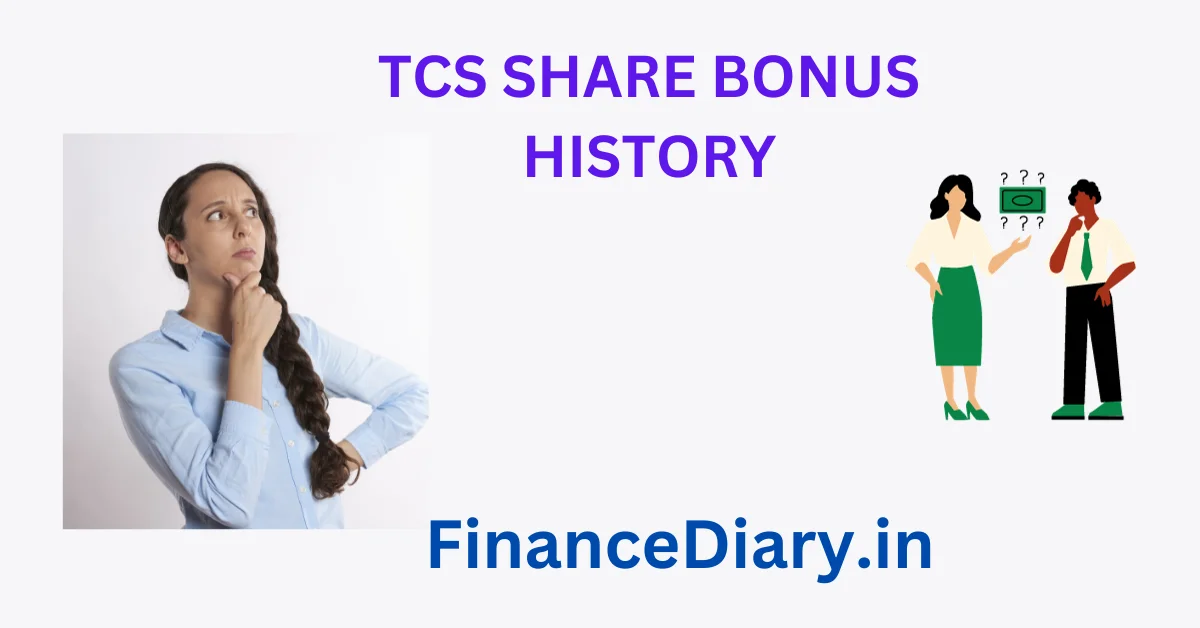In this article we will provide the information related to the TCS Share Bonus History. TCS, short for Tata Consultancy Services, is a major Indian multinational IT company founded in 1968 by Tata Sons.
With its headquarters in Mumbai, Maharashtra, India, TCS is led by key figures like Natarajan Chandrasekaran (Chairman) and Rajesh Gopinathan (MD & CEO).
The company primarily offers services in Consulting, Outsourcing, and Managed Services.
UNDERSTANDING TCS SHARE BONUS HISTORY
What is a Share Bonus?
Share Bonus is a strategic technique employed by companies in the stock market to attract new shareholders and retain existing ones.
Rather than distributing profits as dividends, companies issue bonus shares, creating more value. This technique brings down the individual share price, enticing retail investors, and enhancing stock liquidity and activity.
Shareholders benefit without diluting their portfolios, ultimately contributing to a higher market capitalization, enabling companies to raise more funds from the market.
TCS SHARE BONUS HISTORY
| Announcement Date | Bonus Ratio | Record Date | Ex-Bonus Date |
| April 19, 2018 | 1:1 | June 2, 2018 | May 31, 2018 |
| April 20, 2009 | 1:1 | June 17, 2009 | June 16, 2009 |
| April 17, 2006 | 1:1 | July 31, 2006 | July 28, 2006 |
TCS share bonus history has a history of announcing bonuses on three occasions between 2006 and 2018. The most recent bonus was declared on April 19, 2018, with a bonus ratio of 1:1.
The record date for this bonus was June 2, 2018, and the ex-bonus date was May 31, 2018.
UNDERSTANDING BONUS SHARES
What is a Bonus Share?
Bonus shares are complimentary shares distributed to existing shareholders based on their current holdings. Instead of paying dividends, a company converts its profits into free shares, allowing shareholders to retain or trade these shares in the market.
How Does a Bonus Share Work?
Bonus shares are allotted to shareholders without diluting their portfolios. The number of bonus shares issued depends on the company’s decision.
For example, if a company offers a 4:3 bonus share, shareholders will receive additional shares calculated by multiplying the ratio with their existing holdings.
Benefits of Bonus Shares for Investors
Increase in Market Capitalization
Profits converted into additional shares can boost a company’s market value.
Reduced Share Prices
An increase in shares may lead to lower stock prices, attracting new investors and enhancing stock activity.
No Dilution
Bonus shares do not dilute existing shareholdings, preserving and increasing shareholders’ portfolio value.
What Happens When Bonus Shares Are Issued?
The liquidity of the stock increases, and share prices may fall due to the greater availability of stocks in the market. This increased activity can attract new retail investors to invest in the company.
Do Share Prices Fall After Bonus Issues?
Yes, share prices tend to fall after bonus issues due to market economics and supply/demand trends influencing stocks.
Who Is Eligible For Bonus Shares?
Shareholders who own shares before the ex-date are eligible to receive bonus shares.
Key Dates in Bonus Share Issuance
Bonus Announcement Date
The date set by the company’s management when bonus shares will be issued.
Bonus Ratio
The ratio of bonus shares to the total number of shares an individual or corporation holds.
Bonus Record Date
The cut-off date agreed upon by the management and shareholders for new shareholders.
Ex-Bonus Date
The day preceding the record day set by the company’s management and shareholders.
ALSO READ:
CONCLUSION ON TCS SHARE BONUS HISTORY
By reading this article we got to know about the TCS Share Bonus History from 2006 to 2024. Understanding TCS’s Share Bonus History and the dynamics of bonus shares provides investors and enthusiasts with valuable insights.
Video Credit: Investment_Mantra
As TCS continues its journey in the ever-evolving financial landscape, the strategic use of bonus shares remains a significant aspect of its financial playbook. If you have any query regarding TCS Share Bonus History kindly comment below.
